Books of the month: From Kazuo Ishiguro’s song lyrics to Family Politics by John O’Farrell
An attention-grabbingly titled debut novel from playwright Anoushka Warden, Peter Pomerantsev’s intriguing study of a genius propagandist who outwitted Hitler, and an important study of the distorted thinking patterns of Gen Z by Jonathan Haidt – Martin Chilton picks the best reads for this month

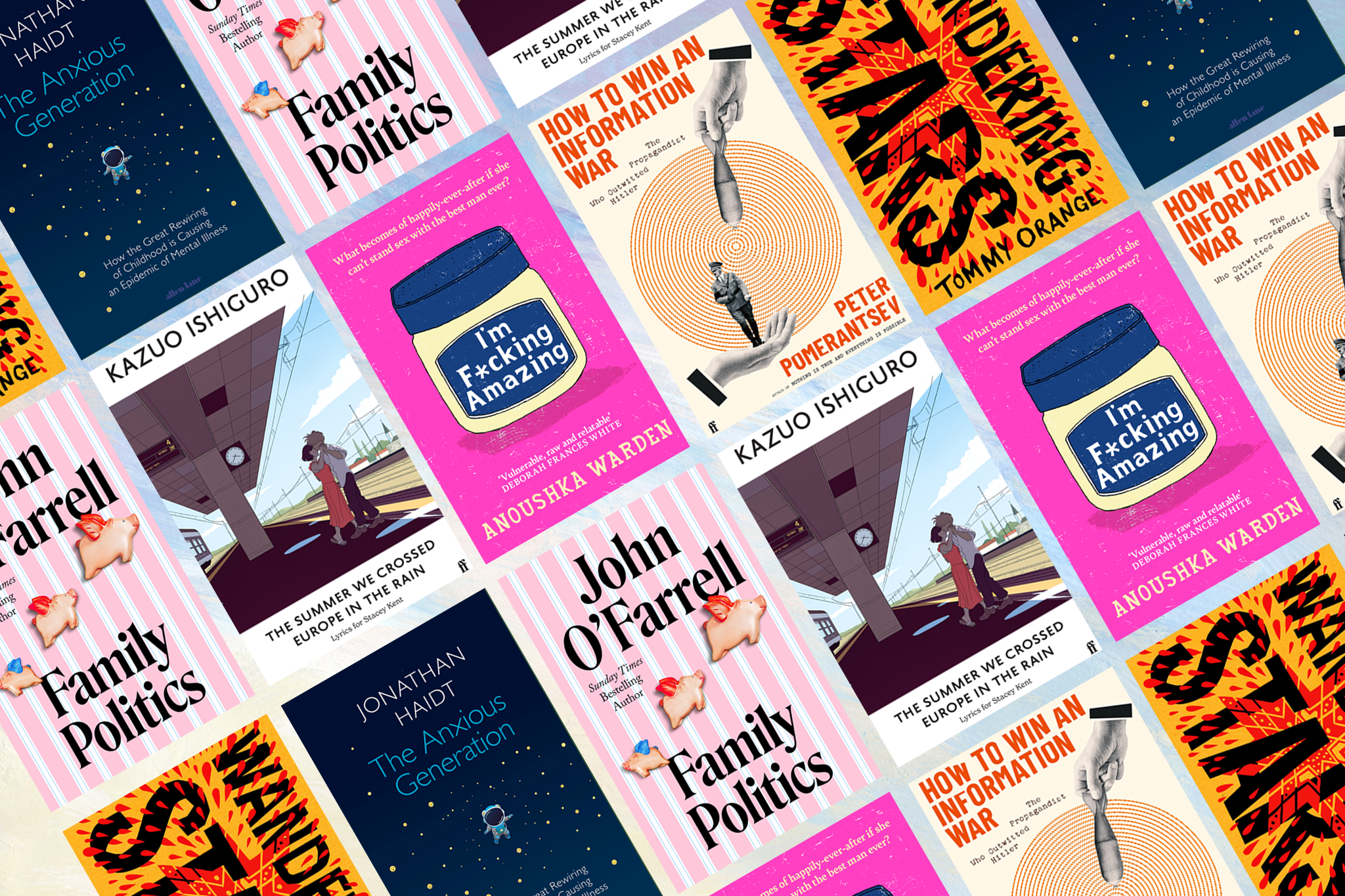
“You’re one of the Muppets, ain’t ya?” was blues legend John Lee Hooker’s response when John Belushi introduced himself on the set of The Blues Brothers. The story of that seminal 1980 movie, which starred Belushi and Dan Aykroyd as a pair of anarchic musicians, is neatly pieced together by Daniel de Visé in The Blues Brothers: An Epic Friendship, The Rise of Improv and the Making of an American Classic (White Rabbit).
There are good music stories in the book, including about BB King being “crushed” after learning years later that director John Landis wanted him in the film, an offer that was never relayed to the guitarist by his manager. De Visé also reports how Landis was forced to plead “Please take that gun away from Mr Charles,” after blind singer Ray Charles fooled around with a weapon after a comic scene involving a shooting inside his Chicago music shop. The Blues Brothers was made in an atmosphere of excess and controversy. For example, Belushi – who died in 1982, aged just 33 – was consuming “mounds of cocaine”, and Carrie Fisher dropped acid just before a key scene. In addition, there was massive budget overspending, rows between cast members and problems with a “homophobic crew”. It’s a must-read for fans of a cinema classic.
It seems that 18th-century brothel owners had their own pre-Viagra cures for erectile dysfunction, aimed at men known as “flogging cullies”. “Flagellation was a fixation of the period… the theory was a good flogging would increase the blood rush to the necessary parts,” notes historian Julie Peakman in Libertine London: Sex in the Eighteenth-Century Metropolis. (Reaktion) This clear-eyed study of the sex lives of women from 1680 to 1830 also notes that diarist Samuel Pepys, a man whose name is usually spoken in reverent terms as a literary giant, was “a known groper”. That revelation didn’t seem to make it into his own diaries.
I wasn’t expecting a cosy read from Why We Die: The New Science of Ageing and the Quest for Immortality (Hodder Press), but Venki Ramakrishnan, winner of the 2009 Nobel Prize for Chemistry, brings a light touch to a complex subject. My three big (admittedly simple) takeaways from his book are the conclusion that it is a “delusion” that people are intellectually as capable in old age as when younger (just ask Joe Biden); that a regime of healthy diet, exercise and sleep works better than any anti-ageing medicines and that all the creepy billionaires wanting their heads frozen as a way of “defeating death” might as well flush their cash down the toilet. “There is not a shred of credible evidence that human cryogenics will ever work,” states Indian-born scientist Ramakrishnam.
Finally, a couple of quick fiction recommendations. Stuart Turton is a reliably excellent and inventive thriller writer and his new novel, The Last Murder at the End of the World (Raven), about a killing on an idyllic island that is the last outpost of humanity, is full of his usual clever, unpredictable twists and skilful pacing. My favourite book in translation this month is Rodrigo Blanco Calderón’s Simpatía (Seven Stories Press, translated by Noel González Hernández and Daniel Hahn). Caracas-born Calderón has written an imaginative, riveting tale about the collapse of the progressive political ideology of Chavismo in Venezuela, mixed with the deft story of a lovelorn man who turns his family home into a shelter for abandoned dogs.
Novels by John O’Farrell, Anoushka Warden and Tommy Orange, a collection of Kazuo Ishiguro’s song lyrics, and non-fiction books by Peter Pomerantsev and Jonathan Haidt are reviewed in full below.

The Summer We Crossed Europe in the Rain: Lyrics for Stacey Kent by Kazuo Ishiguro ★★★★☆
Nobel prize winner Ishiguro has been a fan of American jazz singer Stacey Kent for a quarter of a century. In a lovely introduction to The Summer We Crossed Europe in the Rain: Lyrics for Stacey Kent, the author of Remains of the Day says that Kent “conveys as well as any singer I’ve heard the sense of a person talking to herself”.
Ishiguro, who has been writing songs since he was 15, gives insights into how songwriting helped his fiction. He has penned beautiful compositions for Kent since 2006 and one of the treats of this book is reading his lyrics aloud. The compositions are like poems or short story vignettes. When I interviewed Kent recently, she paid tribute to the novelist’s powers of perception and understanding, and ability to surprise: “With ‘Ish’, everything is oblique, nothing is right there, everything comes in at an angle and that’s what happens with these songs,” she said.
Kent said that Ishiguro has “had this dream” of making this book happen “for a long time”, and that he particularly wanted to feature the illustrations of cartoonist Bianca Bagnarelli. The Italian, who had previously created drawings for his short story “Crooner”, helps make the book a glorious-looking treat. The book will be accompanied by the release of a compilation album of all the recorded Jim Tomlinson/Ishiguro songs for streaming.
The singer describes Ishiguro as having “an incredible sense of humour”. Although his fiction is often achingly sad, some of the featured songs show off his dry wit, especially “Waiter, Oh Waiter”, a playful composition about a diner pleading for help with a “baffling menu”, in which the song’s protagonist sings to the waiter, “underneath that stiff tuxedo/you must be human too”.
The Summer We Crossed Europe in the Rain: Lyrics for Stacey Kent by Kazuo Ishiguro is published by Faber on 7 March, £17.99
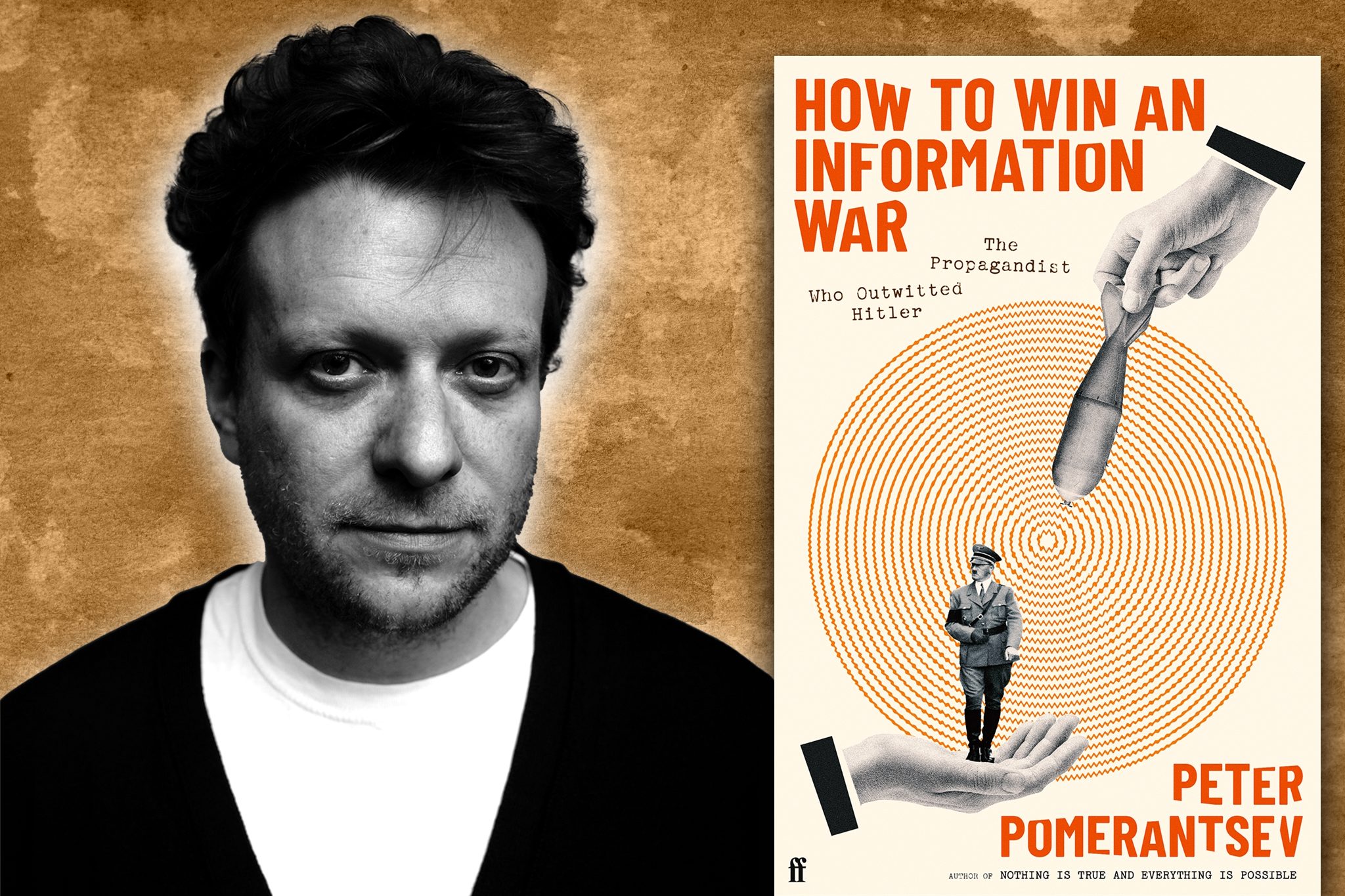
How to Win an Information War: The Propagandist Who Outwitted Hitler by Peter Pomerantsev ★★★★☆
Sefton Delmer, who died in 1979 at the age of 75, was the “nearly forgotten genius of propaganda”, according to Pomerantsev in his intriguing study How to Win an Information War: The Propagandist Who Outwitted Hitler.
Pomerantsev, a senior fellow at John Hopkins University, digs into Berlin-born Delmer’s links with the Nazis in the early 1930s – including accounts of his meetings with Adolf Hitler and Joseph Goebbels – and describes how the British subject, later given an OBE, used this inside knowledge to help Britain in the Second World War.
There are strange nuggets about both Hitler – Delmer said he wore cheap leather shoes and had an obsession about the evils of eating oranges – and Goebbels, a 17-stone man that Delmer dismissed as that “demonic little clubfoot” and “venomous dwarf”. Goebbels believed he was in his own personal propaganda war with Delmer, even commissioning a pro-German battle film in 1943 at huge cost. “He hired 4,000 sailors and 187,000 soldiers to act in the battle scenes, when the real front desperately needed them,” states Pomerantsev.
Delmer was a master of the dark arts, flamboyant and amoral and willing to spread any disruptive news if he thought it would help undermine Germany’s war hopes. He used suicide propaganda aimed at demoralised troops and promoted deserting and malingering. He even perfected the use of sexual images to upset homesick German troops, cartoons that suggested their wives and girlfriends were sleeping with the enemy. The illustrations were drawn by Delmer’s first wife Isabel, who said, “This was great fun! Fancy being employed by the government to create pornography.” The explicit images greatly troubled lord privy seal Sir Stafford Cripps, who said, “if this is the sort of thing that’s needed to win the war, why, I’d rather lose it!”
Many of Delmer’s most effective radio broadcasts were recorded in a billiards room in Woburn Abbey (for the Political Warfare Executive) and into this strange story come authors Ian Fleming (who wrote ‘dirty’ anti-German rhymes for Delmer) and Muriel Spark (who joined Delmer’s propaganda troupe in 1994 when she was 21 and wrote about it in her novel The Hothouse on the East River).
How to Win an Information War covers important topics, not least Pomerantsev’s reflections on the future of propaganda in a digital world and how the enduring aim of propaganda (to give a sense of belonging) are dark arts being exploited by Vladimir Putin and Donald Trump in our own era.
It remains a moot point to what extent Delmer’s dirty tricks actually helped win the war, but he is certainly a quirky, driven figure. After the conflict he returned to working for the Daily Express, finally axed over an “issue” with his expenses. Somehow, you have to admire his defiant riposte to his newspaper bosses. “I can only think clearly in a five-star hotel,” he insisted. Perhaps it takes that kind of chutzpah to be such a skilful bullshitter.
How to Win an Information War: The Propagandist Who Outwitted Hitler by Peter Pomerantsev is published by Faber on 7 March, £20
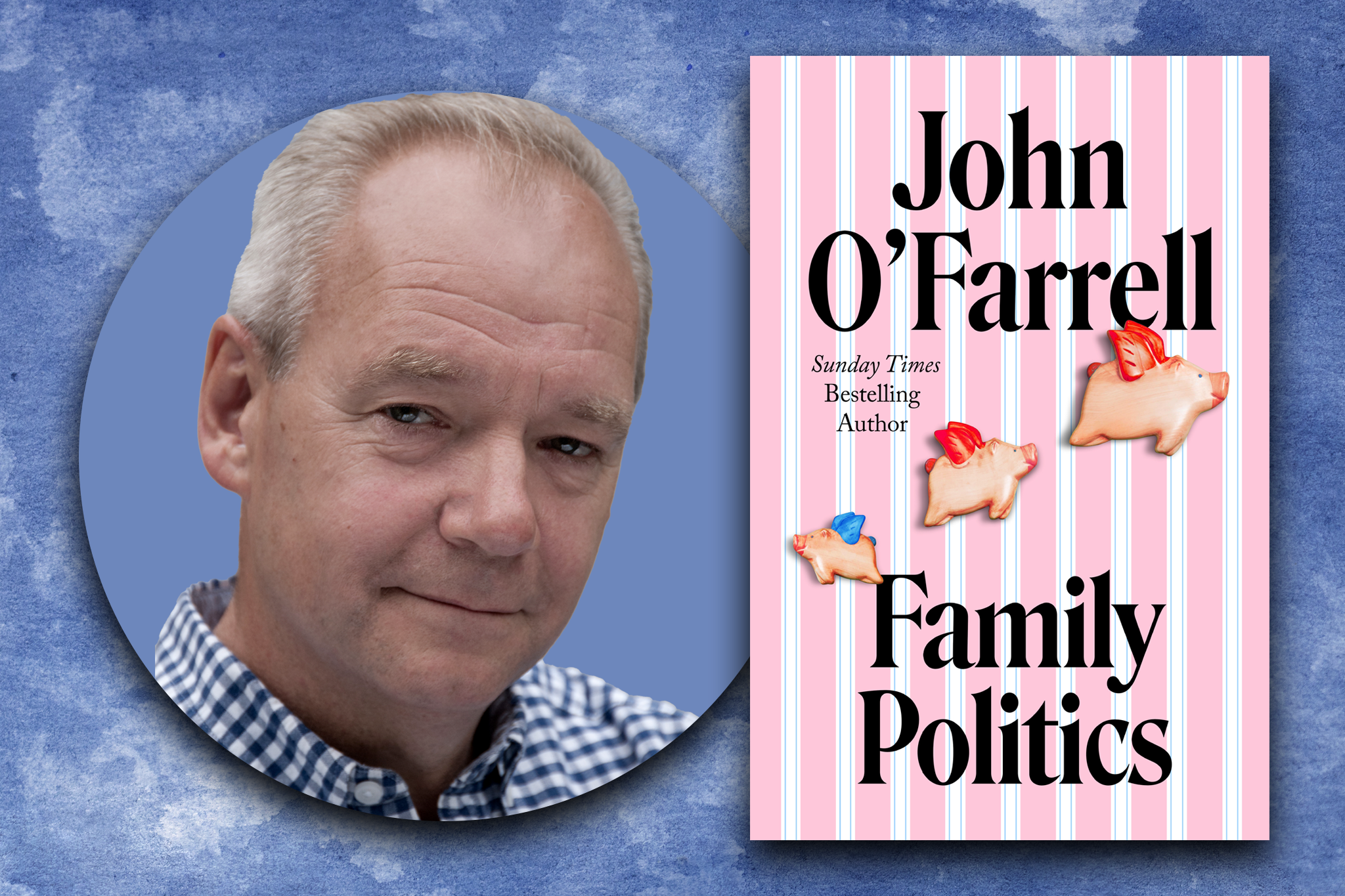
Family Politics by John O’Farrell ★★★☆☆
When Dylan Hughes returns to live at home after university he has a shocking revelation for his proudly left-wing parents Emma and Eddie: he has come “to realise” that, “well, I’m, like, a Conservative”.
O’Farrell, who recently co-wrote Chicken Run 2, is the author of the witty best-selling memoir Things Can Only Get Better, about his time as a lowly Labour activist during the Thatcher years. In Family Politics, he uses comedy about a domestic rift to explore modern factional politics in Britain. When Dylan confesses his dark Tory secret, his parents feel betrayed by a “traitor” and desperately look for answers. “Eddie and I should never have bought him that plastic cash register when he was six,” laments his mother.
There are deft comic moments amid a broad satire about ageing Tories and their woke-bashing. Setting the novel around a local parliamentary by-election in Hastings allows O’Farrell to have fun with Farage-like candidate Sir Norman Skelton, who wants to build a British Empire-themed fun park and hopes to reform the Home Guard so that old bigots can patrol the coastline with their binoculars to spot migrant boats. There is also a running joke about an ambitious local politician called Mrs Smith-Smith.
I was not wholly convinced by Dylan. Do twentysomethings really say “clobber” for clothes, talk about “trad” principles or call their parents “dudes”? Perhaps some middle-aged readers may be satisfied with well-worn humour about their children raiding fridges and leaving a mess everywhere, but in a world where most struggling twentysomethings are burdened with environmental anxiety, student loan misery, rent rip-offs, poor property prospects and crap pension prospects (a time incomparably worse than it would have been for Emma and Eddie), it all seems like skimming the surface of the plight of our youngsters.
Nevertheless, our decade is blighted by “hate-filled culture wars” and O’Farrell has picked a subject that resonates in the post-Brexit landscape. “Every successive news item was about one group of people hating another,” reflects Emma sadly. The plot heads towards violence and a nasty social media political frenzy, with O’Farrell maintaining the pace of caustic comedy. “Sometimes I wondered if we had not had repeats of Dad’s Army on a continuous loop on TV throughout the last 50 years, Brexit might never have happened,” laments Emma. Then again, Private Frazer did warn us: we’re all doomed.
Family Politics by John O’Farrell is published by Doubleday on 14 March, £20
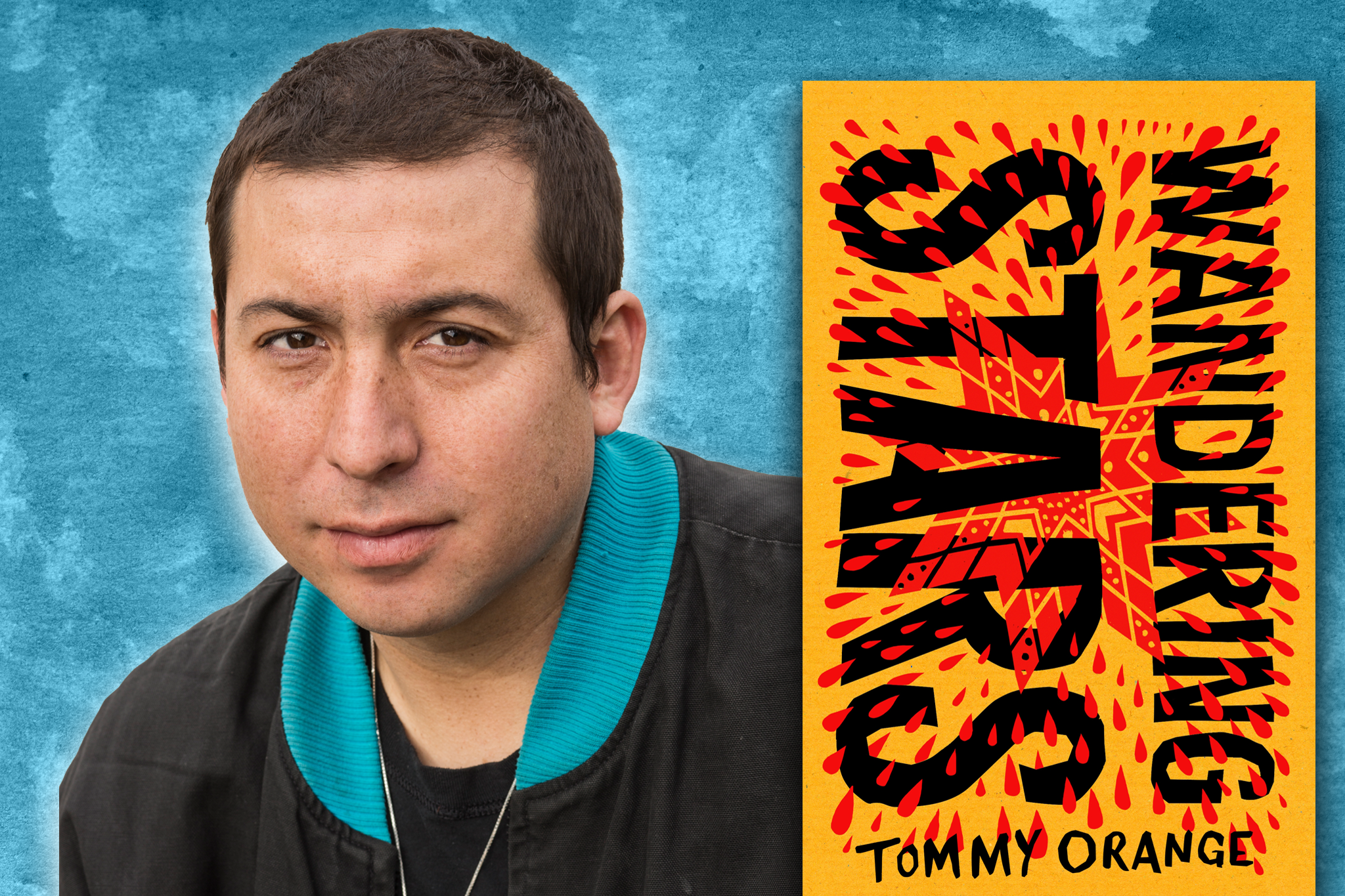
Wandering Stars by Tommy Orange ★★★★☆
Orange returns to some of the themes of his 2018 Pulitzer Prize shortlisted novel There There in the excellent Wandering Stars. The novel, following a Native American family through almost two centuries, is full of heartbreaking, lyrical passages, including about the destruction of the buffalo. In the 1920s, Jude Star, is on a train back to Oklahoma (where the Cheyenne author was born) and as he looks out of the window at the vultures circling carcasses, he says, “I saw the bones of buffalo piled up as high as a man for miles. It did something to me, ate away at some last part of me.”
From the sad prologue to the bleak opium-filled 2018 aftermath, Orange reflects on what it means to be the children and grandchildren of slaughter and mistreatment, including the impact of the Sand Creek Massacre of 1864 and Pennsylvania’s infamous Indian Industrial School, which was created to “kill the Indian” through forced assimilation. Orange says of these white men, systematically trying to break Native American spirits and dissolve their tribes, that it was “a clinical killing, designed by psychopaths calling themselves politicians”.
The novel is full of powerfully drawn characters and thoughtful, angry reflections on the myriad effects of colonialism, including poverty, suicide and violence. As his multi-generation characters fight to salvage a sense of self, they battle with how heavy hope can feel.
Wandering Stars is a striking story of dehumanisation and a moving meditation on addiction. As one character puts it, “To be human was to struggle, and to be a good human was to struggle gracefully.”
Wandering Stars by Tommy Orange is published by Harvill Secker on 21 March, £18.99
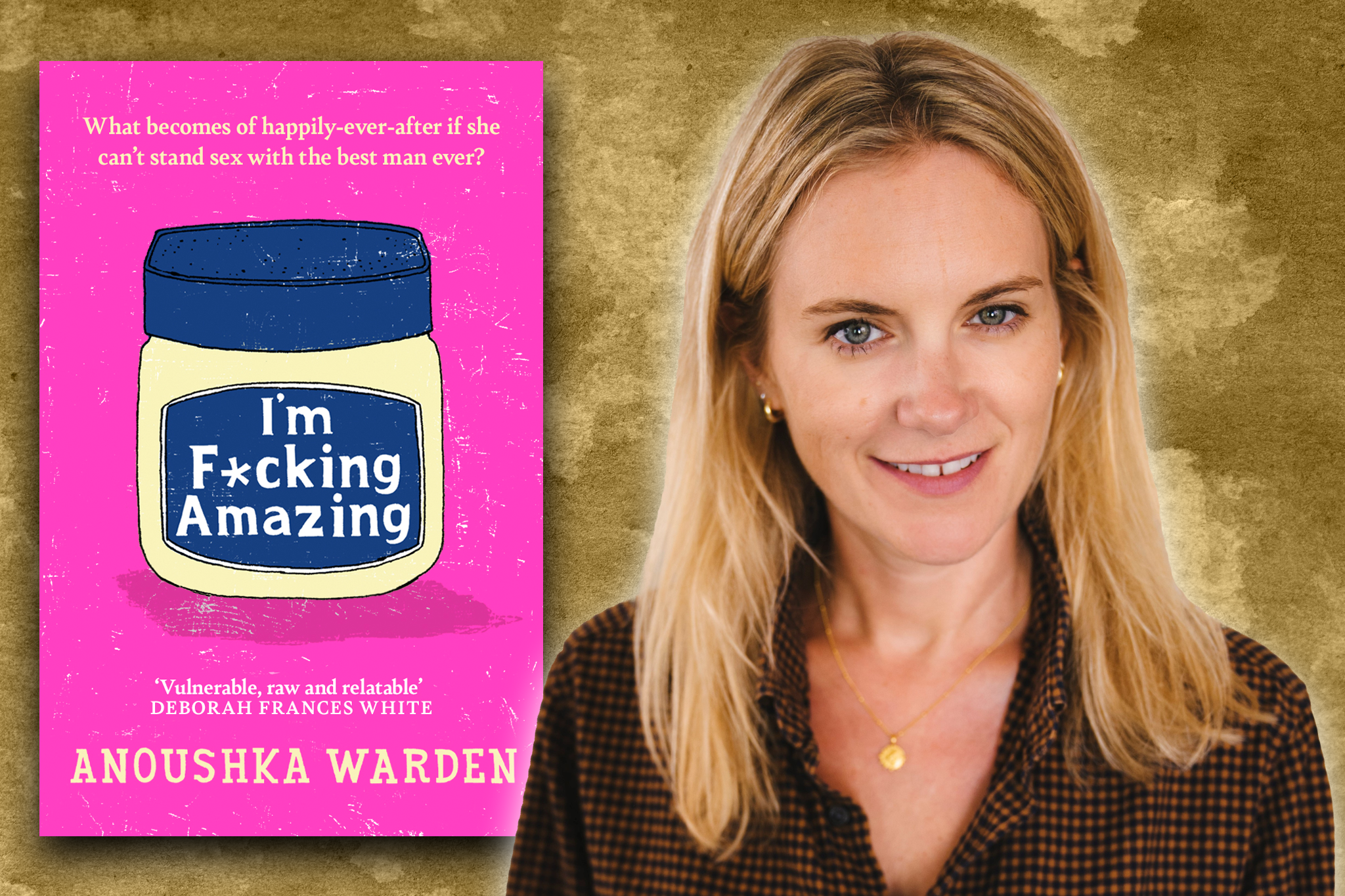
I’m F*cking Amazing by Anoushka Warden ★★★★☆
Attention-grabbing titles have become a feature of Warden’s work (her plays include My Mum’s a Twat and My Dad’s a C***) and her debut novel is called I’m F*cking Amazing. The unnamed protagonist devises a scale to mark the men she has romped with (called “Top Humps”, like a raunchy version of Top Trumps), and one includes a damning verdict about an assignation with a 35-year-old ex-Coronation Street actor: “PLEASURE (me): None.”
Painful sex and painful love are two themes of a jaunty, original novel that involves a lot of licking and probing (there are more anecdotes about fingerings in the novel than you would get at a proctology conference), for a woman struggling through her twenties and early thirties. Warden, a playwright and podcaster, brings biting humour to the account of the protagonist’s “Broken Fanny Plan”, the cure for which seems to involve a fisting from a physiotherapist called Donna and “homework with NHS dildos”.
The main character spends a lot of time pleasuring herself (she times her solo excursions) and is more turned on by Mad Men’s Don Draper than by porn. “I don’t want heavy-handed men with their giant and unappealing-looking penises… why should I wank over that?” she says. Okay, the novel may not have the grace of John Updike’s prose, but Updike and other middle-aged male writers such as Philip Roth have probably had enough stage space to extol the virtue of the mighty penis and male self-pleasuring. Maybe, to use Warden’s terminology, the wet fanny’s time has truly come.
It’s not all sex and jokes, though. . Part of the trick that Warden pulls off is to make the book convincingly humorous and sad, often at the same time. She lives up to her main character’s “relationship rule: about the essential quality of “honest communication”, and there is a sharp sadness to the sections about abortion and collapsing marriages and relationships.
And Warden can be scathingly witty. Her account of the “icks” of the lover known only as “X”, a cowardly, deceitful married man with kids with whom she has a passionate affair, include his toe fungus, his baked beans BO, his moulting pube-like body hair and the terror that the protagonist’s tongue will accidentally discover a flare-up of his piles during “bum-hole licking”.
I’m sure the novel’s market is not male codgers, but I’m F*cking Amazing is truly something else.
I’m F*cking Amazing by Anoushka Warden is published by Trapeze on 21 March, £20
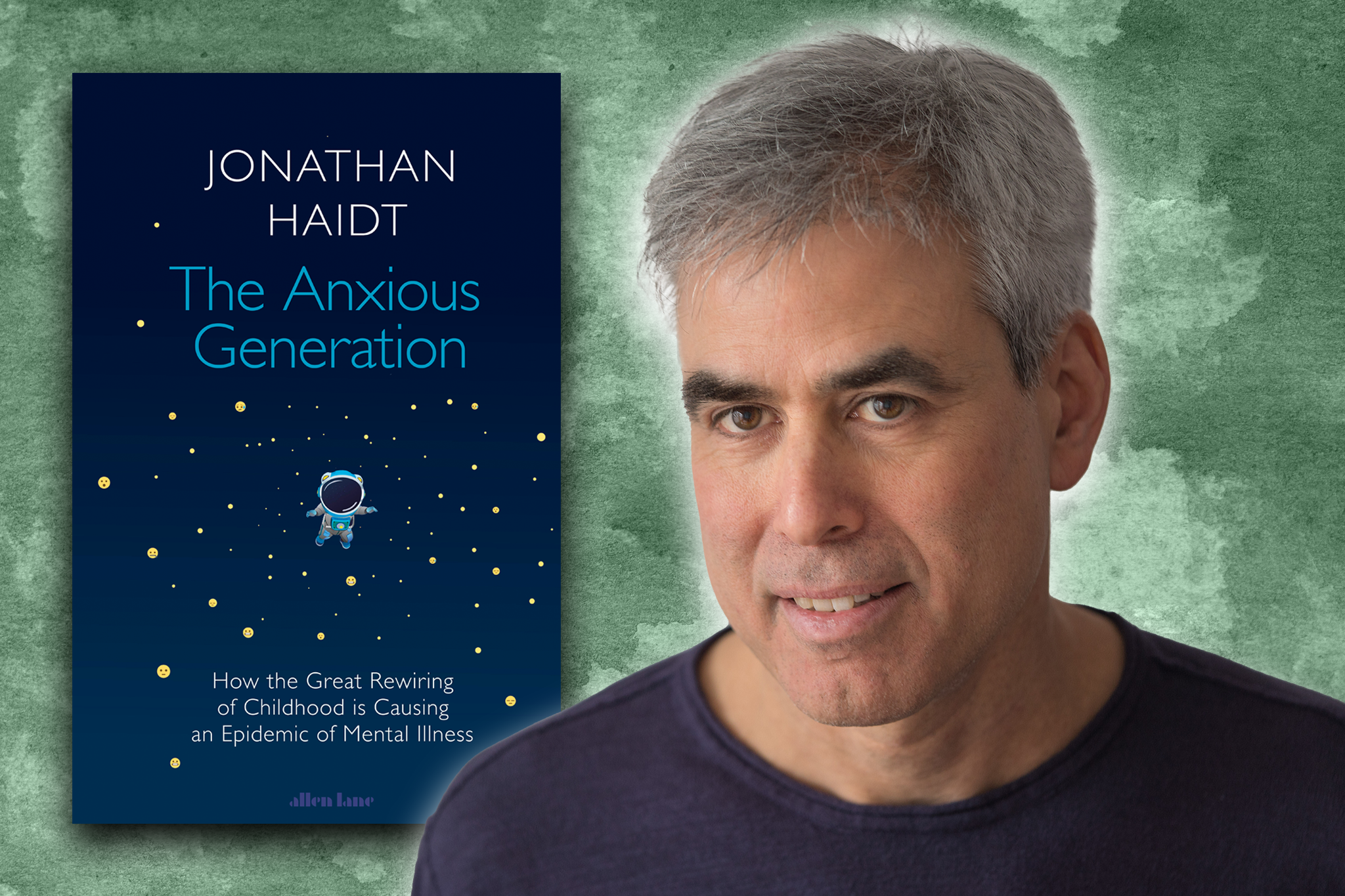
The Anxious Generation: How the Great ReWiring of Childhood is Causing An Epidemic of Mental Illness by Jonathan Haidt ★★★★☆
“Heavy users of social media have higher rates of depression and other disorders than light users or non-users,” writes social psychologist Haidt in The Anxious Generation: How the Great ReWiring of Childhood is Causing An Epidemic of Mental Illness, an important study of the distorted thinking patterns of Generation Z (those born after 1996), who have grown up in a life of fractured real-world interactions.
The Anxious Generation is also a worrying read. Haidt, professor of ethical leadership at New York University, details how reliance on the digital world is causing social deprivation, sleep deprivation, attention fragmentation and addiction – all resulting in depression, aggression and alienation. Anyone who looks around while travelling on public transport can see the zombified smartphone addiction at play. For youngsters, the modern obsession with social comparison and algorithmically chosen influencers is clearly having a harmful effect on their brains and mental subsystems. One of the most disturbing chapters is “Why Social Media Harms Girls More Than Boys”.
Haidt dissects the problems and offers solutions for protecting children during “the most vulnerable period of brain development” – proposals that include (very topically) “no smartphones before high school” and “no social media before 16”. This key book deserves attention.
The Anxious Generation: How the Great ReWiring of Childhood is Causing An Epidemic of Mental Illness by Jonathan Haidt is published by Allen Lane on 26 March, £25






Join our commenting forum
Join thought-provoking conversations, follow other Independent readers and see their replies
Comments